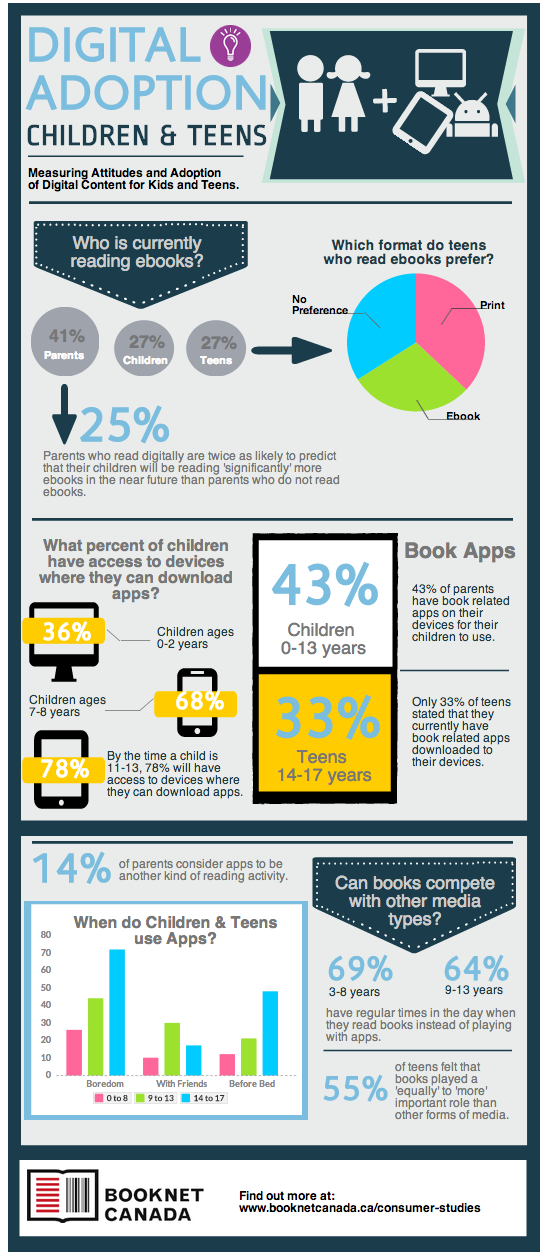Post by 3JulianG on Sept 20, 2014 18:57:15 GMT



While the statistics shown above are Canadian, they are still real and relevant.
There is no doubt that within the last 10 years, with the rise of social media, online streaming, and video
games, there has been a decrease in reading books among all ages. If the discussion we had earlier in
class did not bring it to your attention, reading books is extremely important in our lives from young
children developing cognitive and social skills to reading signs on the street. Today in modern society,
our lives rely on the ability to read, we could not function normally without it.
Studies show that reading books benefit us mentally, makes us better people, reduces our stress,
improves our physical health, and much more. Similar to many things that have gravitated towards
becoming electronic, like school lunch forms, ebooks are on the rise. While paper copy books are still
around and are still being produced, ebooks and ereaders are on the rise. They are cheaper for the
producer and the consumer and are not made out of paper. In addition, it is much easier to carry around
your phone with hundreds of books on it than to carry around a few physical books, especially when
most of the time you have your phone with you anyways.
Ebooks might be the answer to increasing the reading of books. Their technological appearance is
more attractive in this modern world, they are light, their interface is manageable, they are cheap, and they make reading more accessible .
Companies like Amazon (Kindle), Barnes and Noble (NOOK), and Apple (iBooks) buy the rights to books
and therefore only need to write the original code for the reading application. This is cheap and easy
compared to paper publishers because they can reuse the codes for books on every single ereader.
While it is great that it is easy money for the companies and cheap for the costumers, it is making the
physical paper book market obsolete. Small book stores and other establishments alike cannot compete
and are going out of business.
Another point that can be made in favor of the ebook is the fact that they can be illegally downloaded
for free. Computer users can simply go to torrent websites, such as thepiratebay, and download books
for free. While this is illegal, a large percentage of younger consumers do this. If one was looking to get
a physical book for free they would have to steal it, which is more dangerous and risky. It is very difficult
for the people who own the rights to these books to prevent the illegal downloading of their books for
it is very easy to get around such laws on the internet. The illegal downloading of ebooks is beneficial to
the relatively small percentage of individuals who do this and disadvantageous to the original owners
of the books, but since it is a very small percentage and the ebooks are already sold for a very large
markup, torrenting these ebooks is not halting the ebook market.
In addition, it is much easier and cheaper for authors to publish their books as ebooks rather than
physical paper books.
The ebook market seems to benefit everyone except small and large book shops. Will physical paper
books become completely obsolete? If so, is it a price that humanity and society is willing to pay to
increase the amount of reading and the amount of time individuals will spend face down looking at a
glowing screen?
